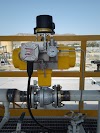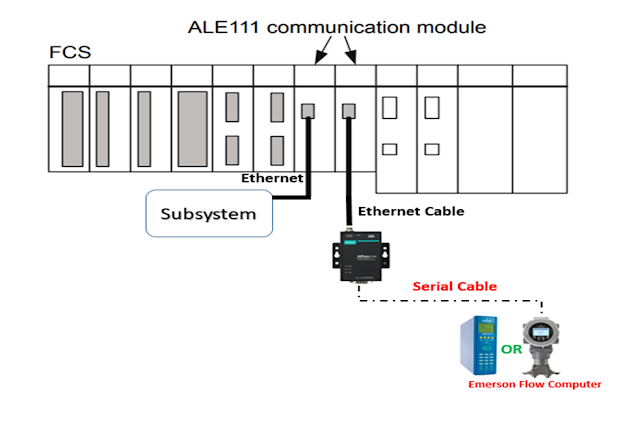What the Factors to Consider Before Upgrading the Control System
Contents
1) Site Survey – (Know How)
2) Documentation Input Step
a. Collect Existing Database Backup
b. Retrieve Existing DCS Control Function Narrative / P&ID/ Logic
Drawings/Logic Charts
c. Process Graphics snapshot/layout
3) Scope Identification Step
a. Revamp and new function development
4) HMI Layer Works
5) Project Execution Strategy
6) Time Synchronization
1. Site Survey – (Know How)
Know the existing system:
· Ask
whether the existing controller will remain, or be replaced.
· Are
there any ESD system in the project?
· What
are the associated 3rd party packages interface with the DCS?
How points/IOs are have been mapped/integrated with the DCS?
· Are
there satellite instrument houses, the RTUs, if yes, get more information about
them.
· Are
there any paper data or electronic data of the existing system?
· Ask
the total count of IO and the number of each type (Analog I/O, Digital I/O).
2.
Documentation
Input Step
Collect Existing Database Backup
Check for the availability of backup files or
any relevant material from the existing control system. Discuss with the system
custodian generally the ICSS engineer from the maintenance team related to the
type of backup file available in the beginning. For example, in the case of
Yokogawa centum VP, the project engineer shall back up all relevant files
having the extensions BOX.EB, TAG.EB, CL, and DX file, etc. with text format.
These files need to be read in the Windows system afterward. It is necessary to
ensure the integrity of the database and it should include all applications.
Make sure that the integrity check and availability of all relevant application
files in the database have been confirmed before the FAT stage.
Retrieve Existing DCS Control Function Narrative / P&ID/ Logic Drawings/Logic Charts
· Collect all
logic drawings/files having the control function narratives applied within
these modules. Log the File revisions. Check the integrity and make sure the
latest revision has been retrieved. Take more attention/highlight any updated
control function in the system but it is not reflected in documents.
·
Pay special
attention to the complex loops.
·
Prepare a neat
and clear master file for all these configuration files.
Process Graphics snapshot/layout
Save all process graphics snapshots.
Coordinate with the ICSS engineer and focus on the special graphics or any
pop-up graphics having any customized function codes scripted within the
existing graphics. Note the layout of the graphics with care.
3. Scope Identification Step
Revamp and new function development
Try to get answers to the following questions:
·
What function
will be revamped during this migration project?
·
What new control
function is to be implemented in the new system.
·
Make sure the
scope is clear.
IO list master
·
Get the master
IO list
·
How to handle
the dummy IO for the existing system.
·
What can be
deleted and what is still to keep in the new system
4.
HMI
Layer Works
Graphics style /Hierarchy
Elaborate the change in graphics to the customer
or end user. It should include the graphics style, such as background color,
pipe color and thickness, equipment symbol etc.
Discuss with system custodian and acquire clear
understanding on the following modules:
·
Operation group
·
Control
group
·
Trend group
·
Report
assignment
·
Alarm philosophy
·
Operation
Keyboard assignment (if the propriety keyboard is being used; provided by the
control system OEM).
5. Project Execution Strategy
Project execution
Plan the project timeline and prepare the
strategy for actual onsite deployment during the best available window.
Normally that happens during the turnarounds so know the duration of
shutdown.
·
Know the graphic
conversion policy (redesign or conversion)
·
If conversion,
full or partially (identify target graphic)
·
Can we get a
backup of database of existing system.
·
Do we need
prepare FDS, and the approval process of it.
·
DCS engineering
·
Know the
scanning time of system.
·
Are there Batch
process in this project? If yes, how they manage recipe modification and
change.
·
Know whether
they use DOC3000 for modification or maintenance.
·
Do they fell
difficult to manage instrument asset, and what kind of issue resides in site.
Yokogawa PRM provides this function.
·
Are they facing
a risk of knowledge loss when senior DCS engineer retired. Yokogawa exapilot is
useful
·
Migration
·
Ask if it is
possible to make database (*.EB, *.CL) updated before they hand it to us for
analysis
·
What kind of
database can be provided?
·
Does they want
to keep current graphic design or build it from scratch.
·
Know the
functions in AM.
·
In case that
existing annunciators shall be retained, try to get all alarm information
related to existing annunciator.
·
System structure
of existing system, electronic data or paper files.
·
Migration story
provided by Honeywell for existing system, if possible.
6. Time Synchronization
Time synchronization Scheme
What scheme is being used for time
synchronization of all workstations and controllers on the control network?
Either the Network Time Protocol (NTP) is being used or any physical
workstation is being defined as the Master Time Server node through the
Physical Network Properties provided in the system.
We need to discuss the scheme for time
synchronization.
Generally, the control
system providers provide a precise system time for their customers using
the Global Positioning System(GPS) network time server having a
specific IP address on the control network.
7. Miscellaneous
Is any smart instrument with DE protocol used?
Any DE protocol/STIIM instrument used or not in the existing system. Online modification is not permitted without PRM
Do not miss some special functions that are only
applied in the existing system.








2 Comments
Really informative
ReplyDeleteThanks for the appreciation. Means a lot.
Delete